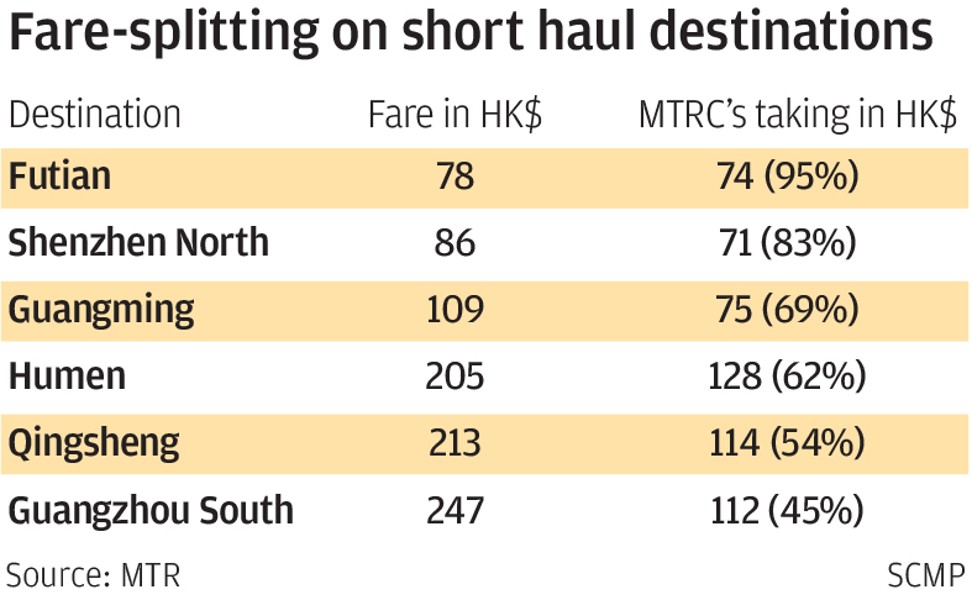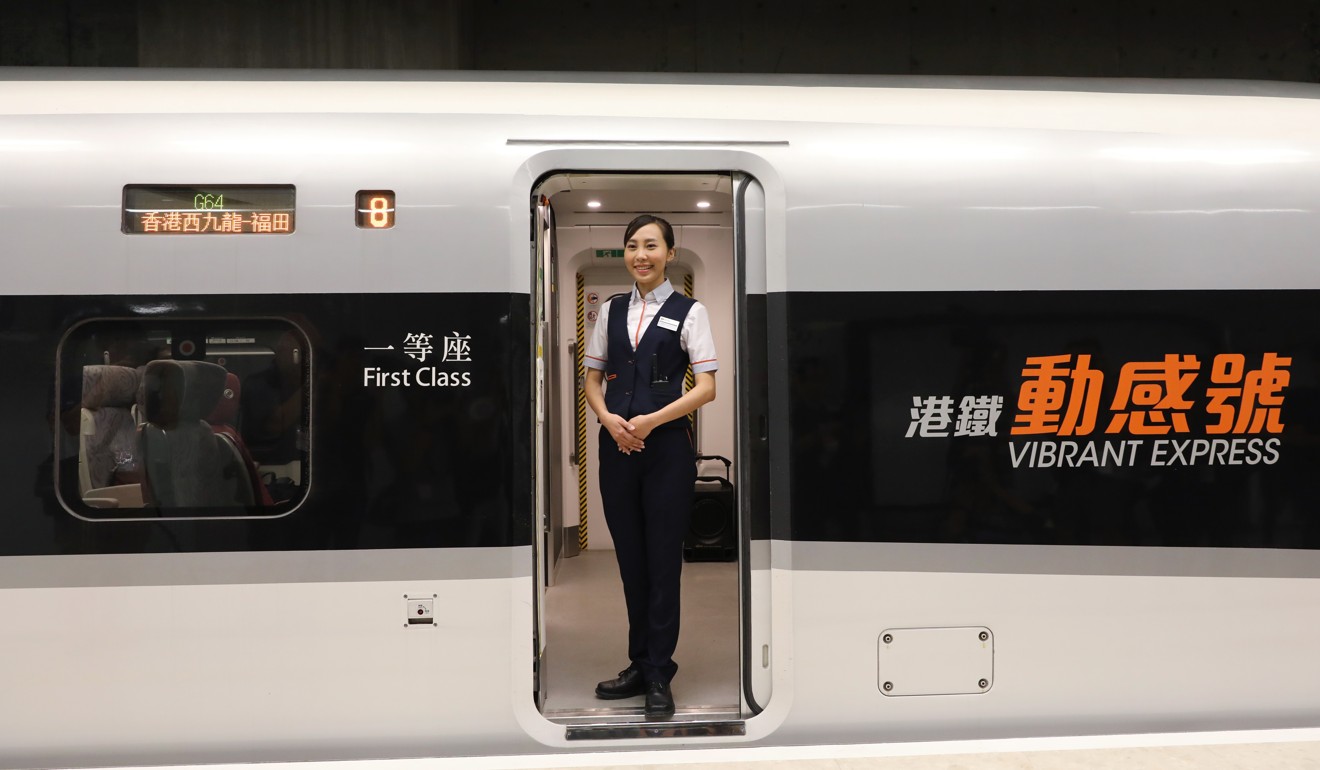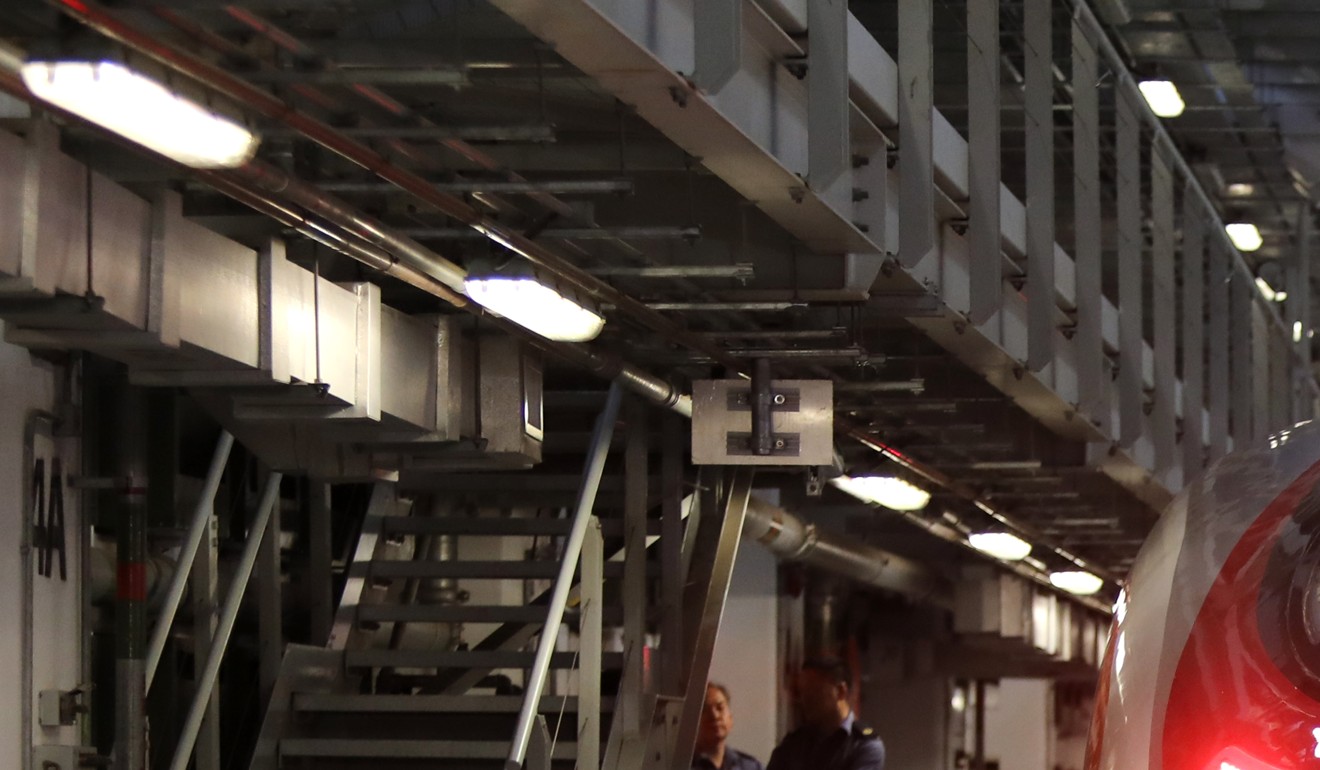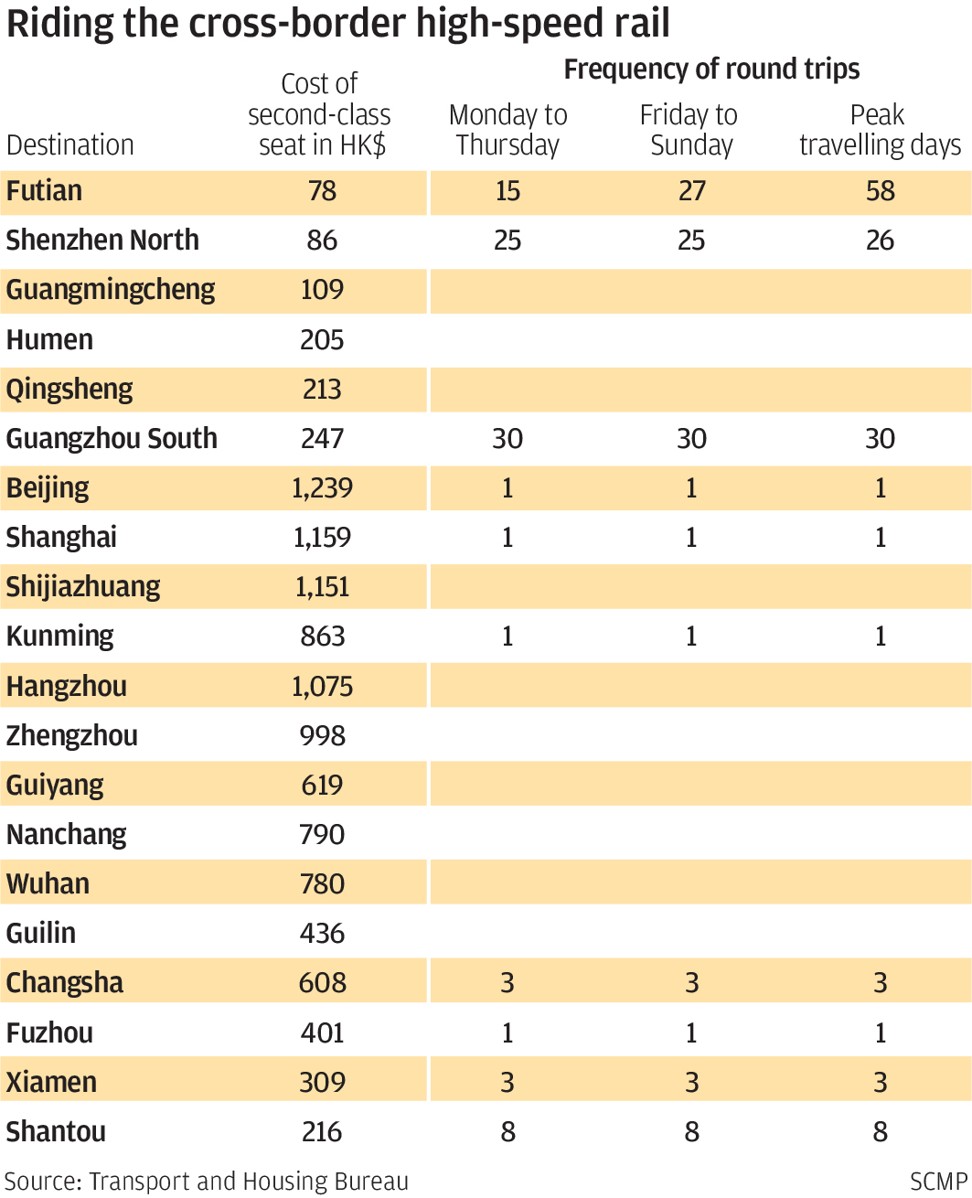Hong Kong high-speed rail to mainland ‘will be profitable’ from September 23 start date, carrying 80,000 passengers a day
Travellers will get direct access from West Kowloon station to 44 locations across the border, up from 18 announced earlier

Hong Kong’s transport authorities have announced that the long-delayed and over-budget high-speed train service will directly connect the city with 44 destinations in mainland China, and promised it will be profitable from the day it starts on September 23.
The HK$84.4 billion Guangzhou-Shenzhen-Hong Kong Express Rail Link is now expected to carry 80,100 passengers a day – 28,900 fewer than previously estimated – and will be run for 10 years by the MTR Corporation under two agreements signed on Thursday to transfer operating rights to the railway giant.
“We are pretty confident that the high-speed rail will not be incurring any loss in the future,” Secretary for Transport and Housing Frank Chan Fan said, basing his claim on the latest projection of daily passenger flow and “competitive” ticket pricing.
The MTR Corp will pocket 45 to 95 per cent of ticket fares to six short-distance stops in Shenzhen and Guangzhou – which will cost between HK$78 and HK$247 – with the rest going to the China Railway Corporation.

The government expects the express rail to earn HK$671 million within this year, while operating costs are estimated at HK$472 million.
“Given such a low patronage, we are still making a reasonable return … therefore, if we are expecting more patronage in the future, the probability of incurring a loss is minimal,” Chan said.
The transport minister added that the government had no plans to subsidise the MTR Corp, in which it owns a 75 per cent stake, to run the express rail. Instead, the MTR Corp would have to pay HK$2.7 billion over the next decade for the right to run the service.
The money would be paid to the Kowloon-Canton Railway Corporation (KCRC), the former railway operator that still exists as a statutory public entity.
The deal also includes a “sharing mechanism”, which will only be triggered when the difference between projected and actual passenger flow is more than 15 per cent. The KCRC will absorb 70 per cent of losses incurred or 70 per cent of profits earned under such a scenario.

Deputy Secretary for Transport and Housing Kevin Choi Kit-ming said the mechanism would only be triggered under “extreme” conditions, and was basically meant to provide financial security for the rail operator.
Outgoing MTR Corp CEO Lincoln Leong Kwok-kuen added: “The financial arrangement balances the needs of different stakeholders with a sharing of risk and rewards.”
While the new service will take passengers from Hong Kong to Guangzhou in just 48 minutes – compared with two hours using the existing through-train service – it will be limited to only three pairs of non-stop trains making six journeys both ways per day.

The other rides, stopping at various stations in between, will take 50 to 71 minutes.
For a trip to Beijing on the express rail, the journey time is close to nine hours.
There will be 114 pairs of short-haul trains daily during holiday peak periods, while 70 and 82 pairs will run on weekdays and weekends respectively.
The 44 mainland destinations were unveiled on Thursday. The new stops include Guangming in Shenzhen and Shantou in Guangdong province.
As train fares are set in yuan, tickets sold locally in Hong Kong dollars will be adjusted monthly in keeping with exchange rates. A portion of tickets will be reserved for sale in Hong Kong.
Pro-establishment lawmaker Michael Tien Puk-sun, who chairs the Legislative Council’s railways subcommittee, said the government’s latest passenger estimates made people feel “cheated”, as officials had sought additional funding citing a higher number in 2015.
Civic Party lawmaker Tanya Chan, who convenes a concern group opposing the so-called co-location arrangement which will allow mainland officials to enforce their laws over a designated part of Hong Kong’s West Kowloon terminus, described the deal as a “tailor-made” for the MTR Corp.
“I have never seen any deal as short as 10 years,” she said, fearing taxpayers would have to foot the maintenance bill after the first decade.
But Frank Chan hailed it as a “historic moment for Hong Kong”.
“It will bring not only a brand new, faster and more convenient means of cross-boundary transport to and from the mainland for people in Hong Kong, but also strengthen links between Hong Kong and the mainland by connecting the city to the 25,000km national high-speed rail network,” he said.
“With more and more Hong Kong people working, conducting business, studying and retiring on the mainland, the commissioning of the [express rail link] can enhance the long-term development opportunities for promoting sustainable growth in trades including tourism, commerce and professional services.”
Additional reporting by Jeffie Lam
